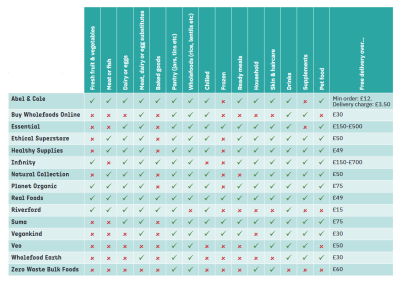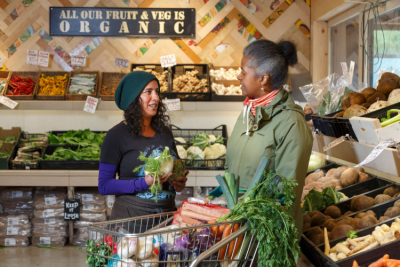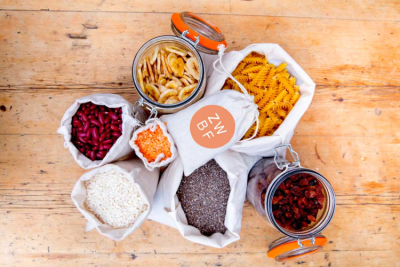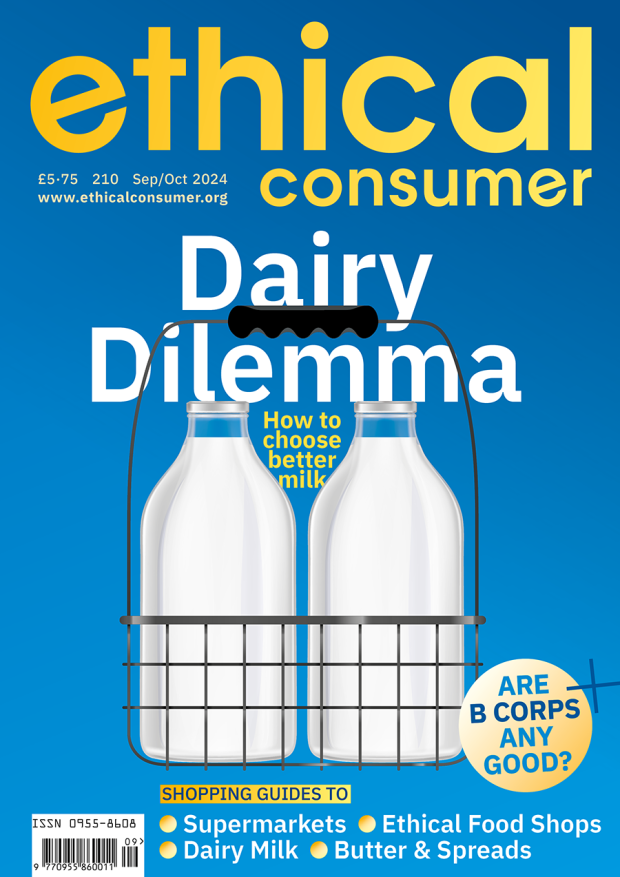In this new guide, we look at eco shops that can be used as alternatives to mainstream supermarkets.
We show you their extensive range (spoiler alert: some of them sell almost everything supermarkets do) and discuss their ethical credentials that are, for the most part, far superior to that of their high street counterparts.
Although they sell much more than just food, for the purpose of this article we are focusing mainly on them as ethical food shops, and as alternatives to traditional supermarkets.
The ethical food shops in this guide sell online, although a couple also have one or two physical shops. Some people live in 'ethical food deserts' where there is little or no access to independent wholefood shops, refill shops, independent greengrocers, farmers' markets or one of the slightly more ethical supermarkets. Or some people may find access to the nearest ethical shop too difficult to make it practical.
Although not everyone wishes to shop online, if you find it hard to buy ethical brands locally, or want to support more ethical retailers, or want to reduce how much you spend in big supermarkets, these eco supermarkets may be what you've been looking for.
Which eco supermarkets are in the guide?
We've tried to include a range of the different types of eco food shops available in the UK. This includes some who sell fresh foods as well as store cupboard staples, ones who sell chilled/frozen products like vegan cheese, as well as retailers who also sell ethical toiletries, household products like laundry detergent, and pet food.
Some are co-operative wholesalers. Some sell products as loose or bulk options, so you can scale up and buy much bigger quantities if preferred.
The scope of this guide is on food shops that deliver nationally. However, there are lots of independent local wholefood and refill shops all around the country. We encourage you to find the one closest to you – our reader survey of almost 300 people revealed that 65% lived within 30 minutes of their nearest wholefood shop by foot, bike or public transport.
We have not included large chains like Grape Tree or Holland & Barrett which have a national network of bricks & mortar shops as we were focusing primarily on online options.
Some of the companies in this guide have been in operation for 30+ years. If you haven't heard of them yet, read on to find out more.







